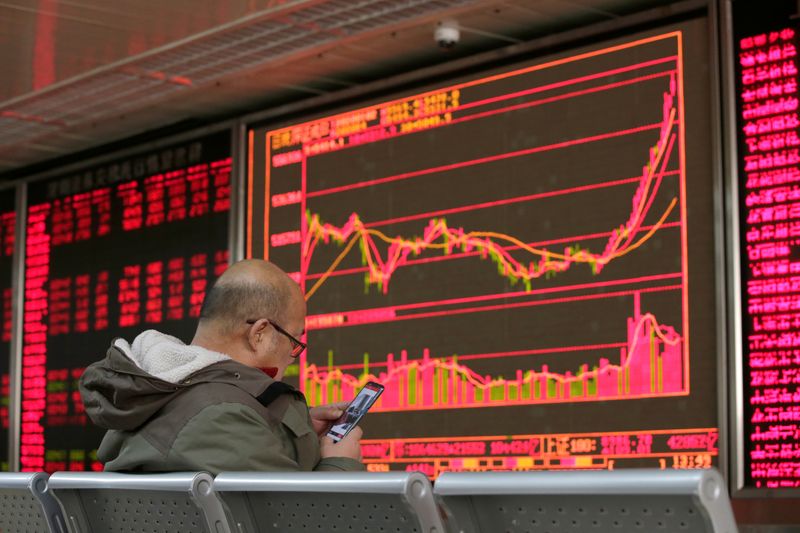Investing.com-- China’s benchmark stock indexes rose sharply on Tuesday after a major sovereign fund vowed to increase its holding in local stocks, ramping up hopes of more government support for battered local markets.
The bluechip Shanghai Shenzhen CSI 300 index jumped 1.8%, while the Shanghai Composite index added 0.8%. Both indexes recovered further from five and four-year lows hit last week, with all sectors in positive territory.
Gains in mainland stocks also saw Hong Kong’s Hang Seng index jump 2.3%, pulling it further away from over one-year lows.
The rebound in Chinese markets was fueled chiefly by sovereign fund Central Huijin Investment Ltd saying that it will continue to increase its holdings of local exchange-traded funds.
Central Huijin is a state-owned investment vehicle in China, and holds equity stakes in major Chinese state-owned firms. The firm is a unit of China Investment Corporation, with its announcement presenting more government support for local markets.
Shortly after Central Huijin’s announcement, the China Securities and Regulatory Commission also said it will guide more local funds and asset managers to buy into the domestic market, while also instructing Chinese firms to buy back more shares.
The moves helped stem an extended rout in Chinese equities, which were the worst performers in Asia through 2023, and saw little relief so far in 2024.
Recent media reports also showed that China was tightening its regulatory grip on volatile movements in stock markets, and had recently instructed major fund managers to block customers from shorting local shares.
But whether the measures could spur a sustained recovery in Chinese stocks remained to be seen, given that recent economic data showed little improvement in the world’s second-largest economy.
Concerns over slowing economic growth in China were the biggest drivers of a rout in domestic stocks, and had largely offset any monetary stimulus measures from Beijing.
The government also remained largely conservative in rolling out any fiscal support for the economy, despite repeated calls from investors for more measures.
Tuesday’s move comes after a string of weak purchasing managers index readings for January, which pointed to little improvement in business activity. The readings set a dour tone ahead of key inflation data due later this week.
